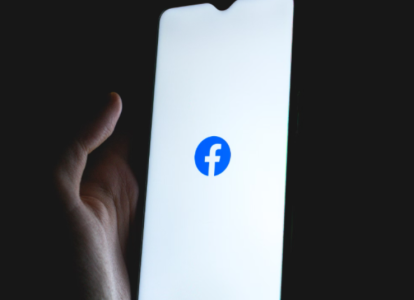Want to feel happier? Science says logging off social media at the right time works
- Replies 0
If you’ve ever felt your blood pressure spike while scrolling online—especially during a heated election season—you’re not alone.
But what if the key to better mental health was as simple as logging off?
A major new study involving over 35,000 participants has uncovered eye-opening insights into what happens when users step away from social media in the weeks leading up to an election.
The findings may surprise you—and might even change how you think about your own digital habits.
Researchers from several top US universities, in collaboration with a leading tech company, set out to examine the effects of social media use during one of the most politically charged periods in recent history.
Participants were paid to deactivate their accounts on either of two major social platforms during the final weeks of the 2020 presidential election. Some stayed off for six weeks, others for just one.
The timing was no coincidence. The study occurred during a global health crisis, widespread economic instability, and a high-stakes race between Joe Biden and Donald Trump.
While political content made up just a small percentage of what users saw in their feeds, the psychological effects of staying connected—or disconnecting—proved to be real and measurable.
So what happened when people unplugged? The study revealed that stepping away from social media led to a modest but meaningful boost in happiness—about a 4% shift from participants reporting they felt happy “sometimes” to “often.”
Stress and anxiety levels also dropped, with fewer people reporting symptoms of depression or emotional overload.
The most significant mental health gains were seen among users over age 35, undecided voters, and those without college degrees.
For younger adults, especially women aged 18 to 24, stepping back from image-heavy content made the biggest difference in overall wellbeing.
Also read: Sip your stress away: 5 dietitian-approved drinks guaranteed to calm your worst days
Interestingly, the emotional lift wasn’t limited to those heavily involved in politics.
The improvements spanned both politically engaged and disengaged users, hinting that the relief came from disengaging with the platforms themselves—not just politics.
While most participants didn’t go completely offline, many simply shifted to other digital spaces. Even this light digital pivot was enough to create a noticeable mood boost.
Participants were less involved in online political conversations during their break, but their understanding of current election issues stayed the same.
Also read: Understanding the “functional freeze”—how stress can keep you stuck
This underscores a growing truth: you can remain informed without constantly being immersed.
Experts like Dr. Petros Levounis, president of the American Psychiatric Association, emphasize that rising anxiety is often fueled by nonstop exposure to distressing news.
Even brief breaks from online noise can offer emotional relief.
Growing concern about the influence of social media has prompted some lawmakers to call for stricter platform oversight, including warning labels and new usage guidelines.
Read next: Unlock the secret to melt away stress with this simple color walk technique

Have you ever taken a break from social media? Did it help your stress levels or improve your mood? Share your experiences and tips in the comments below—your insight might inspire someone else to hit pause and breathe easier.
But what if the key to better mental health was as simple as logging off?
A major new study involving over 35,000 participants has uncovered eye-opening insights into what happens when users step away from social media in the weeks leading up to an election.
The findings may surprise you—and might even change how you think about your own digital habits.
Researchers from several top US universities, in collaboration with a leading tech company, set out to examine the effects of social media use during one of the most politically charged periods in recent history.
Participants were paid to deactivate their accounts on either of two major social platforms during the final weeks of the 2020 presidential election. Some stayed off for six weeks, others for just one.
The timing was no coincidence. The study occurred during a global health crisis, widespread economic instability, and a high-stakes race between Joe Biden and Donald Trump.
While political content made up just a small percentage of what users saw in their feeds, the psychological effects of staying connected—or disconnecting—proved to be real and measurable.
So what happened when people unplugged? The study revealed that stepping away from social media led to a modest but meaningful boost in happiness—about a 4% shift from participants reporting they felt happy “sometimes” to “often.”
Stress and anxiety levels also dropped, with fewer people reporting symptoms of depression or emotional overload.
The most significant mental health gains were seen among users over age 35, undecided voters, and those without college degrees.
For younger adults, especially women aged 18 to 24, stepping back from image-heavy content made the biggest difference in overall wellbeing.
Also read: Sip your stress away: 5 dietitian-approved drinks guaranteed to calm your worst days
Interestingly, the emotional lift wasn’t limited to those heavily involved in politics.
The improvements spanned both politically engaged and disengaged users, hinting that the relief came from disengaging with the platforms themselves—not just politics.
While most participants didn’t go completely offline, many simply shifted to other digital spaces. Even this light digital pivot was enough to create a noticeable mood boost.
Participants were less involved in online political conversations during their break, but their understanding of current election issues stayed the same.
Also read: Understanding the “functional freeze”—how stress can keep you stuck
This underscores a growing truth: you can remain informed without constantly being immersed.
Experts like Dr. Petros Levounis, president of the American Psychiatric Association, emphasize that rising anxiety is often fueled by nonstop exposure to distressing news.
Even brief breaks from online noise can offer emotional relief.
Growing concern about the influence of social media has prompted some lawmakers to call for stricter platform oversight, including warning labels and new usage guidelines.
Read next: Unlock the secret to melt away stress with this simple color walk technique
Key Takeaways
- A large US study of over 35,000 people found that deactivating social media during the 2020 election period led to a small but noticeable boost in happiness.
- The biggest improvements were reported by social media users over 35, undecided voters, and people without a college degree.
- Emotional relief was not limited to highly political users, and many participants simply switched to other apps during the break—suggesting the act of logging off itself had value.
- While deactivating reduced political engagement online, it did not impact how informed users were about the election—highlighting that it’s possible to stay updated without staying plugged in.
Last edited:







